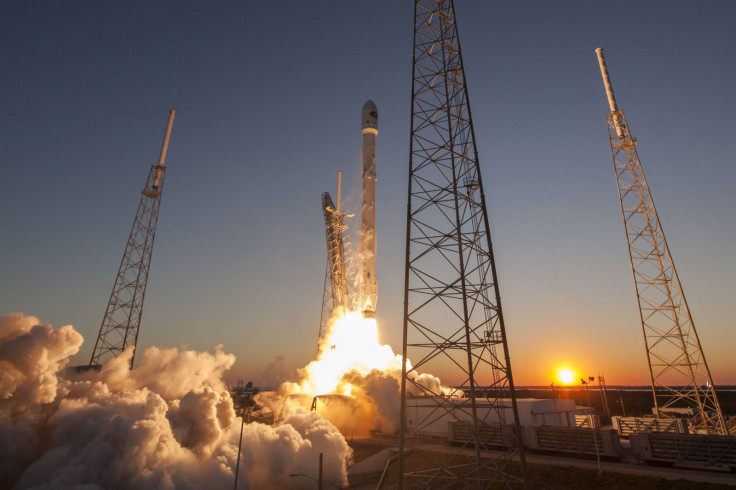SpaceX plans to launch a rocket every two to three weeks from new Florida launch pad
The ambitious announcement comes on the heels of the successful return of SpaceX to flight in January.
SpaceX plans to launch its Falcon 9 rockets every two to three weeks once the new launch pad in Florida opens next week, the company's president, Gwynne Shotwell, told Reuters. The ambitious announcement comes on the heels of the company's successful return to flight last month with the launch of its Falcon 9 rocket carrying a payload of 10 satellites into orbit for communications company Iridium.
The January launch was SpaceX's first since the spectacular, expensive launch pad explosion at Cape Canaveral in Florida in September last year which destroyed the rocket as well as Israeli firm Spacecom's $200m (£159m) Amos 6 communications satellite and caused severe damage to the launch pad. The massive accident grounded the spaceflight company's operations for more than four months.
"We should be launching every two to three weeks," Shotwell said. She added that ongoing repairs to the launch pad at Cape Canaveral Air Force Station should cost "far less than half" of a new launch pad which should amount to around $100m.
Reuters noted that SpaceX was already approaching that pace before the September explosion.
The new launch pad is located at Nasa's Kennedy Space Centre.
Shotwell said the company, founded by Elon Musk, is modifying the Falcon 9's engines to boost performance and resolve potential safety concerns and plans to change the design of the rocket's turbopump to avoid cracks. Nasa and the US Air Force, both of whom work with SpaceX, have raised concerns over these cracks.
The company was hired by Nasa to transport astronauts to and from the International Space Station beginning in 2018. It is also one of two companies certified to fly military and national security satellites for the US Air Force.
During ground tests of SpaceX's Merlin engines in 2015, the company found two types of cracks, Shotwell said, noting that they were not related to the September blast.
"For us, the concern was not the cracks, but do they grow over time? Would these cracks cause a flight failure?" she said. "I think Nasa is used to engines that aren't quite as robust, so they just don't want any cracks at all in the turbo machinery."
To address the cracking issues, Shotwell said SpaceX came up with a software fix for the more serious one and redesigned the turbine wheel. Although the second type of cracks in welds and shrouds do not pose a concern for flight, Nasa and the Air Force have requested a redesign, she said.
The new turbopumps will be installed before the first unmanned test flights scheduled for November. The redesigned turbine wheels, on the other hand, already flew in July last year.

SpaceX's successful January launch brought the Falcon 9's success rate up to 28 in 30 flights. The Wall Street Journal recently reported that SpaceX had aimed to launch 20 rockets in 2016 and 27 in 2017, citing financial records obtained by the publication. However, the company launched just eight Falcon 9 flights last year.
Reuters reports that the company currently has a backlog of 70 missions worth over $10bn.
"Since 2002, we have been at the forefront of revolutionising space technology, with a solid track record of success, strong customer relationships and more than 70 future launches on our manifest, representing over $10bn in contracts," Bret Johnsen, SpaceX's chief financial officer, told the New York Times last month. "With over $1bn in cash reserves and no debt, the company is in a financially strong position and is well positioned for future growth."
© Copyright IBTimes 2025. All rights reserved.





















